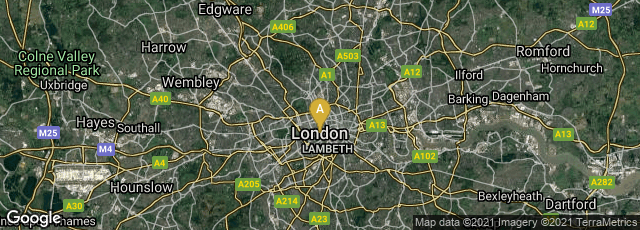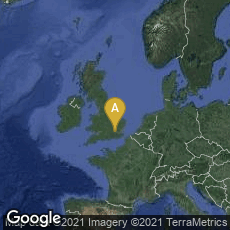

A: London, England, United Kingdom
In 1830, at the height of new efforts by reformers such as Henry Brougham and the Society for the Diffusion of Useful Knowledge toward the promotion, through cheap publications, and Mechanics' Institutes, of practical knowledge as a tool to advance society—an effort which was frequently ridiculed as The March of Intellect —writer and dramatist William Thomas Moncrieff and caricaturist Robert Cruikshank issued an 85 stanza illustrated poem entitled The March of Intellect, a Comic Poem. A typical concern of caricaturists of The March of Intellect was that educating the lower classes would disturb existing social order. This was a reasonable concern because of the social disruption and political unrest in England and on the Continent that was partly a result of mechanization at the time. Some of these concerns were best expressed in humor.
From the poem I have quoted selected stanzas:
"XV.
"This is, indeed, a wondrous age,
Most rare of all we've had:
Improvement now is all the rage,
Folks are improving mad.
XXXVI.
In the domestic offices
(For kitchen's vulgar now)
The march of mind steps by dregs,
And reaches all below.
XXXVI.
The cook skims now in science' dream
Alive to all that passes;
She her potatoes boils by steam,
And lights her fire by gasses.
XLI.
Housekeepers (bless their learned heads!)
Know what is by each art meant,
In short the march of knowledge spreads,
All through the home department.
XLVII.
Learning's by poverty unchill'd,
Each workhouse is a college,
And paupers, deep in science skill'd,
Prove they're not poor in knowledge.
LVIII.
Words now grow high--reform! reform!
All's uproad and disquiet;
The beadle hears the rising storm,
And comes to quell the riotl
LIX.
True member he of the select,
He speaks like a recorder;
Begs they will church and state respect,
And keep up social order.
LXVIII
Masters no more, tyrannical,
Improvement's course can stop;
For intellect mechanical
Now marches in each shop.
LXIX.
For sciences' honors yearning still,
Mechanics gladly pay;
And operative learning will
Surely work its way.
LXX.
Mechanics' Institutions
At each second step we meet;
And Birkbeck's resolutions
Stare in every street.
LXXI.
The barber takes you by the nose,
And talks about nosology;
And Thames Street warehousemen disclose,
Their art in crane-iology.
LXXIX.
Such is the general thirst of knowledge,
So little is its scarcity;
Soon Tooley Street will have its College,
St. Giles its University.
LXXXI.
The press is pressing through each street
Its rapid march--if willing,
You may now purchase forty feet
Of knowledge for a shilling!!"